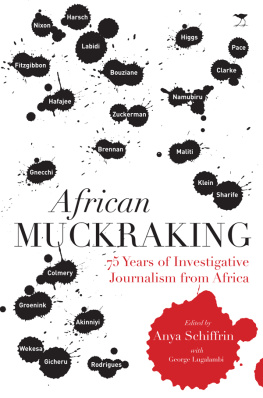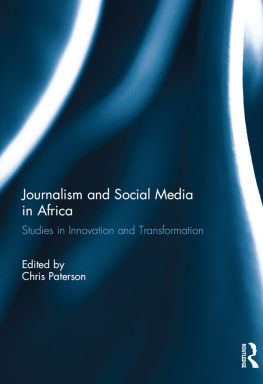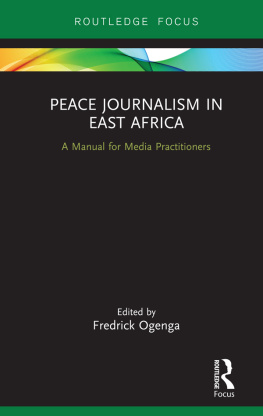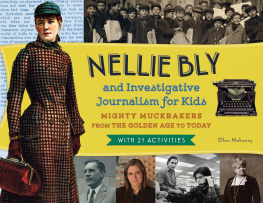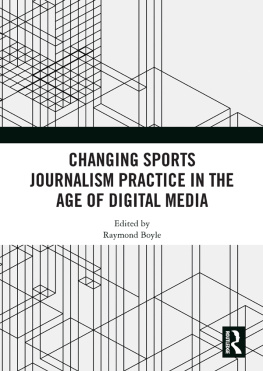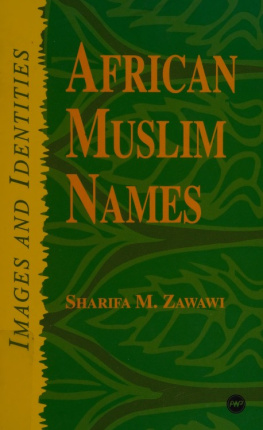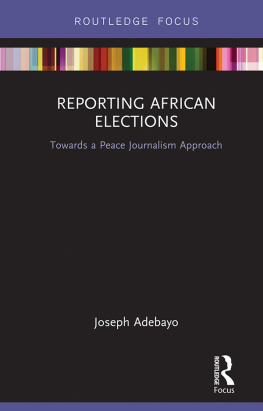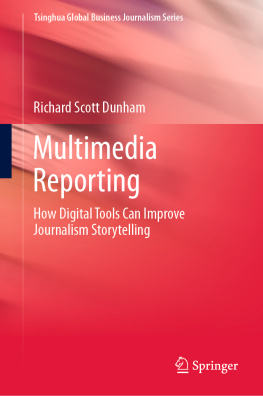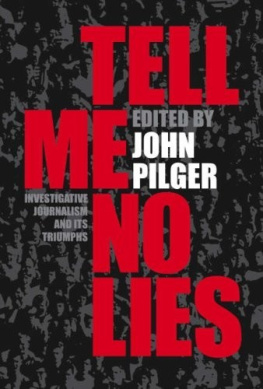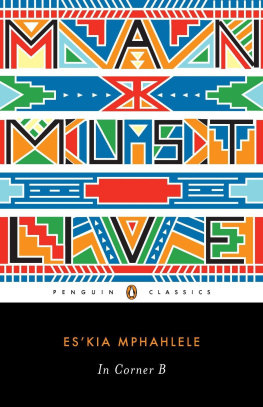All rights reserved.
African Muckraking: Past and present
A NYA S CHIFFRIN
A FRICAN JOURNALISTS ARE WELL AWARE of the power of their trade. When officials try to pay them off with stuffed brown envelopes, when police officers harass them, when thugs intimidate them all these things happen because the media still has the inherent ability to disrupt the status quo and challenge vested interests. Journalists know it, and so do politicians.
For the public in both Africa and in the Global North, however, the essential work of African journalists is seldom recognised. In Africa, there are many reasons why its hard for even the best journalists to reach a truly broad audience: the low education, literacy and income levels of potential audiences, poor infrastructure which makes both reporting and distribution more difficult, language barriers, soft censorship and other factors. In the Global North, the contributions of African journalists are unknown, often because of a sneaking assumption that good journalism simply doesnt originate in Africa: Western audiences may trust the satellite news, parachute journalist more than they do local reporters.
This book aims to dispel these assumptions about Africa. African journalism not only exists, but is part of a tradition going back more than a century. Further, it is activism-oriented, influential and growing.
For jaded readers, it bears reminding that journalism really can change the world. In todays maelstrom of 24-hour satellite, clickbait, financially struggling newspapers, Twitter hot takes, and fake news, we can sometimes lose sight of journalisms foundational role in a properly functioning society. But the dissemination of truth by skilled and credible journalists has, at least since the dawn of the Industrial Age, been a bulwark against the excesses of the powerful and greedy. In particular, investigative journalists have made brave and essential contributions to safeguarding rights and social and political change when the other institutions of democracy have failed.
T HE US M UCKRAKERS
In the United States, the best-known such reporters were a group known as Muckrakers. A tight-knit group of investigative and campaigning journalists, they rose to prominence during the Progressive Era (1890s1920s), a time of reforms that their work helped precipitate. The preceding Gilded Age (which began in the 1870s) had been a period of rapid and unscrupulous industrialisation, war against the indigenous peoples of the American West, and exploitation of workers and natural resources on an unprecedented scale. Post-Civil War America was like a broken piata, and the most powerful and ruthless the robber barons seized the spoils. The turn of the 20th century was a time of oligarchs, large and powerful banks, rapacious oil monopolies, high levels of economic inequality, social unrest, political patronage and corruption.
A clutch of gritty journalists stepped into the fray. These included Frank Norris, Jacob Riis, Lincoln Steffens, Ida Tarbell, Upton Sinclair, Ray Stannard Baker and a dozen or so others. They were not numerous, but their impact was broad. Over a 15-year period from about 1902 1917, they took on topics like food safety, the quack patent medicines then being sold all over the United States, overcrowding and poverty in Americas rapidly growing cities, brutal working conditions, child labour, and corruption and patronage in local government. Their stories outraged the reading public, who pressed for new laws to reign in the excesses of monopoly power. We remember these journalists as heroes today, but in their time, they had detractors. President Teddy Roosevelt, himself a Progressive, helped coin the term muckraker which he drew from a well-known, 17th-century Christian allegory, Pilgrims Progress during a 1906 speech in which he admonished journalists to focus on more than just the filth (Goodwin, 2013). Luckily, the writers didnt heed the criticisms, and many of the worker protections, food safety laws and other industrial regulations, which America enjoys today, exist partly thanks to the movement they started.
The American Muckrakers are the most famous, but there were other journalists around the world who made similar contributions, many of them in colonised lands where disparities and oppression were even worse than those in the United States. In Africa, George Washington Williams (who was born enslaved) and British activist ED Morel were known for their exposs of the brutal conditions in the Congo during the reign of Belgiums King Leopold (Hochschild, 2013). And in 1905, British correspondent Henry Woodd Nevinson travelled to So Tom and Principe and wrote about the dreadful working conditions and indentured servitude on the cocoa plantations that supplied the Cadbury chocolate company (Nevinson, 1935; Satre, 2006; Higgs, 2013).
But the change-making investigative journalism of Africa was not limited to the contributions of a handful of crusading outsiders. Indeed, there is an entire tradition, lesser-known, of African muckraking that spans multiple generations on the continent. It was a key component of the struggles against colonialism and apartheid, has been essential in exposing corruption from Nigeria to Kenya and from Egypt to South Africa, and has influenced the thinking on the continent about environmental degradation, citizenship, war, womens rights, human rights and democracy.
The topics the American Muckrakers tackled are familiar to their African counterparts today. Corruption, poverty, big oil and labour abuses are all subjects that African journalists have returned to again and again. But in general, this work whether contemporary or decades old is relatively unknown overseas, and even in Africa itself. A comprehensive, up-to-date volume about the history of journalism on the continent has yet to be written, although James Brennan from the University of Illinois has begun one such project. Louise Bourgaults Mass Media in Sub-Saharan Africa (1995) and William Hachtens Muffled Drums: The News Media in Africa (1971) are still widely cited, as are more recent academic papers and studies, including work by Fackson Banda, James Brennan, Julia Cag, Martin Scott, Wisdom Tettey, Elizabeth Barrett and Guy Berger.
African Muckraking was conceived in the hope of making a significant contribution to closing this gap. With 41 pieces of campaigning and/ or investigative journalism from around the continent, each with context provided by todays foremost experts on the continent, this book provides important evidence that the reporting exists, that it matters and continues to matter and that it deserves recognition in Africa and the world. When choosing the pieces to include, we tried to be inclusive: we included excerpts from pamphlets as well as newspaper stories, looked to find pieces from a wide range of countries and stressed pieces that had impact or covered an important topic, even if they werent classical works of investigative journalism by todays standards. We wanted to include remarkable stories that stay with the reader long afterwards, like Richard Mgambas harrowing description of the albino boys living in fear of their parents or the expos by Sam Sole and Brendan Seery about nefarious covert operations during the apartheid years in South Africa, or Fatuma Noors reporting on the young men who join Al-Shabaab.

